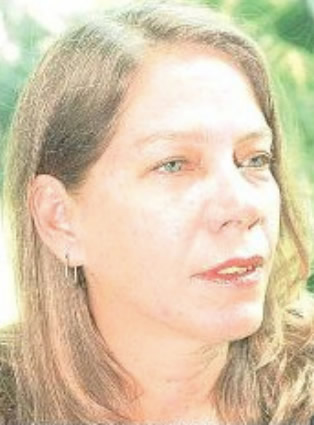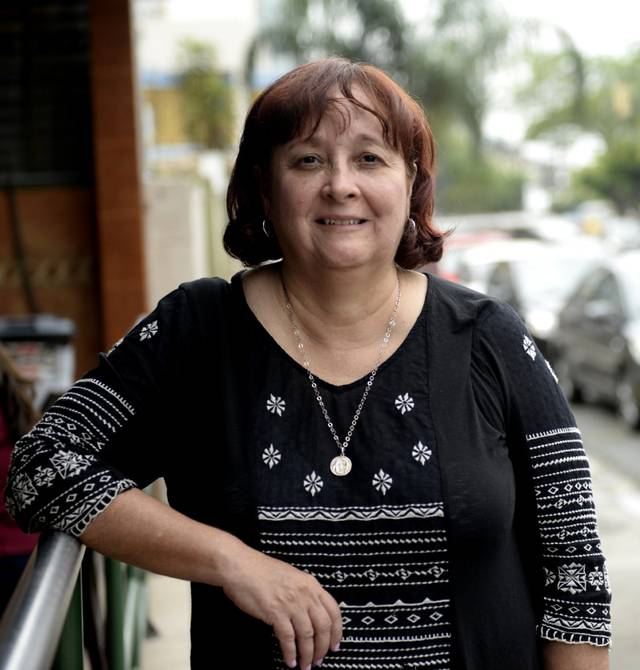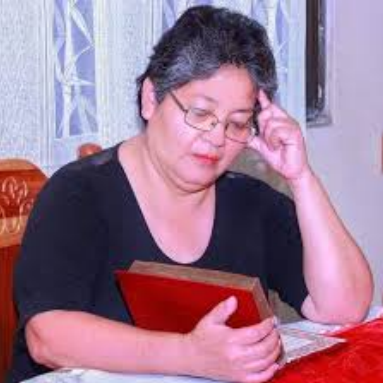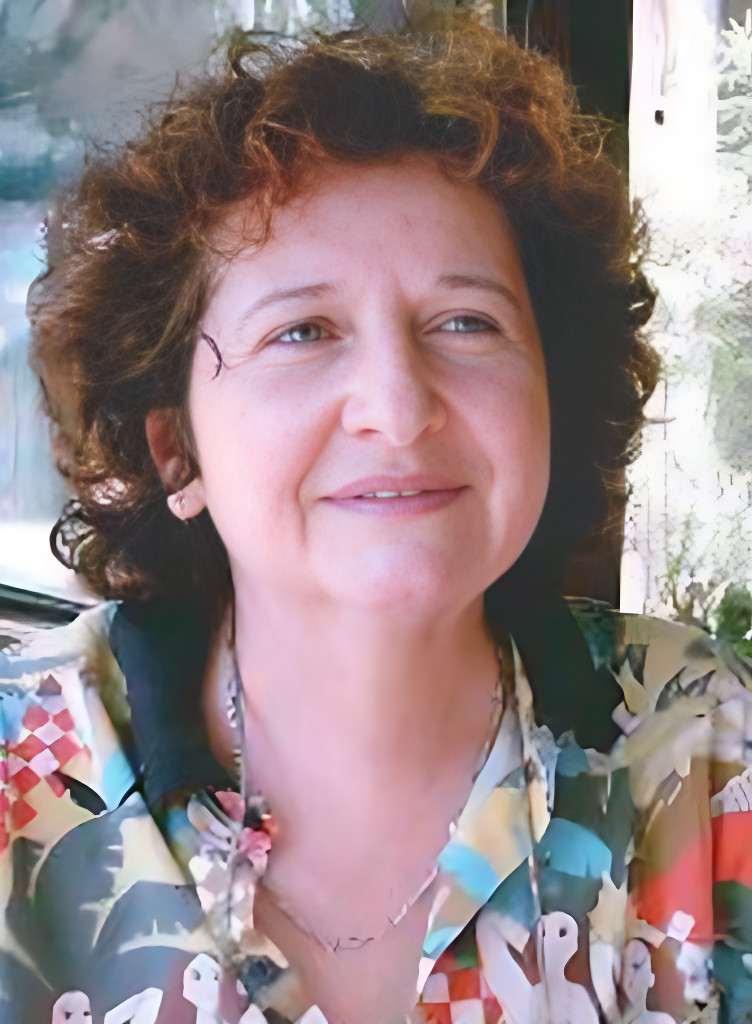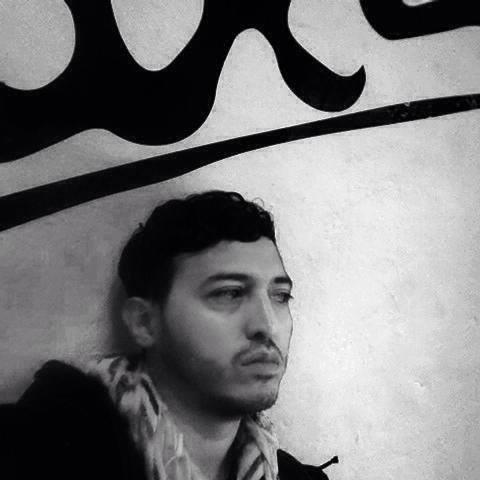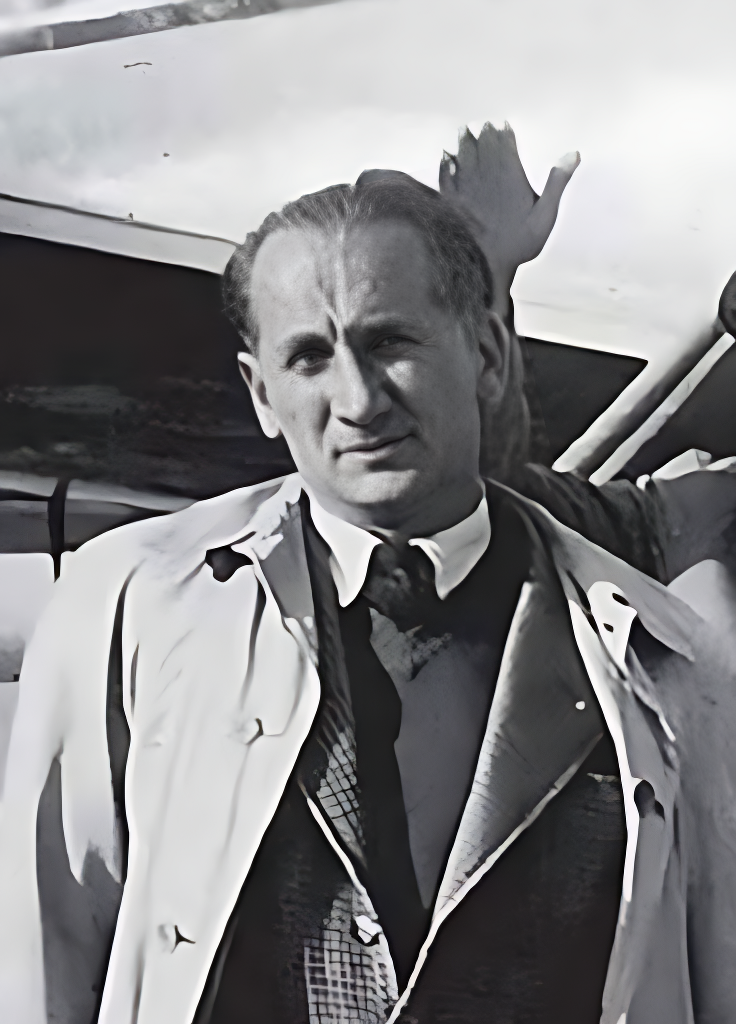Gilda Holst Molestina (Guayaquil, 1952 – Guayaquil, October 22, 2024) was an Ecuadorian writer and university professor. Known for her use of irony and humor, her works addressed themes of gender inequality and societal norms. She authored three notable short story collections: Más sin nombre que nunca (1989), Turba de signos (1995), and Bumerán (2006), as well as the novel Dar con ella (2000). Her work was included in several anthologies, including Cruel Fictions, Cruel Realities: Short Stories by Latin American Women Writers (1997), edited and translated by Kathy S. Leonard. In 2021, Editorial Cadáver Exquisito released her Obra completa (Complete Works). Holst was also a key figure in Ecuadorian literature, a professor at the Universidad Católica de Santiago de Guayaquil, and director of its School of Letters.
Continue reading “Gilda Holst”Month: November 2022
Maritza Cino
Maritza Cino Alvear (Guayaquil, 1957) is an Ecuadorian poet and university professor. She has published 8 poetry collections and a collection of 23 short stories entitled “Días frívolos” [Frivolous Days]. Her poems have appeared in Latin American and Spanish magazines, as well as U.S.-based online magazines. In addition, some of her poetry has been translated into English, Italian and French. Her latest poetry collection “El temblor de los huertos” [The Tremor of the Orchards] was published in 2022.
Continue reading “Maritza Cino”Maria Cecilia Corella
Maria Cecilia Corella Ramírez (Daule, September 9, 1967) is an Ecuadorian writer, poet, and cultural promoter. She has authored five books: “Poesías amatorias,” “Poemas Corellanos,” “La voz de los Daulis,” “Versos caminantes,” and “Daulis.” From 1985 to 2015, she was the editor of La Voz de los Daulis, a literary, historical, and cultural magazine. She hosts a local cultural TV show Viernes de Cultura y literatura on DV Daule Vision. She is presently the president of the Corporación Cultural Daule, whose cultural event, Sofá Cultural, aims to promote Daule’s literature, dance, music, and other local art forms. She is a member of the World Hispanic Union of Writers and the Union of Writers and Artists of Tarija.
Continue reading “Maria Cecilia Corella”Olga Caro
Olga Caro Alda (April 25, 1949) is a French author, Hispanist, researcher, university professor, and lecturer. She holds a PhD in the Spanish language and has been teaching Latin American literature and culture at the Université du Maine in Le Mans, France. She specializes in the works of Ecuadorian novelist Jorge Icaza. In 1994, her interest in Icaza took her to Ecuador, where she extensively researched the author by exploring libraries and connecting with Icaza’s widow, Marina Moncayo. Marina graciously welcomed her into her home and provided access to Icaza’s personal archives, which Caro meticulously studied, photocopied, and photographed. During her research, Caro discovered two of Icaza’s long-lost stories, “Patrón Rafico” (published as “Capítulo para una novela inédita” in 1945) and “Fantasía reincidente” (1960). Impressed by her findings, Caro shared the news with Marina, who exclaimed, “It’s incredible, Jorge was looking for them to publish them and he couldn’t find them!” With the approval of Icaza’s daughters, Fenia and Cristina, Caro published a book in 2005 titled “Nouvelles de Jorge Icaza et études critiques” [Short stories by Jorge Icaza and critical studies]. The book featured the two rediscovered stories and included eight essays that Caro had previously written about Icaza.
Continue reading “Olga Caro”Luis Alberto Bravo
Luis Alberto Bravo Piña (Milagro, 1979) is an Ecuadorian writer, widely recognized for his novels, short stories, and poetry. His poetry collections, “Antropología pop” (2010) and “Utolands” (2011), have been particularly well-received. In 2011, Piña was named as one of the “25 best-kept literary secrets of Latin America” by the Guadalajara International Book Festival. His novelistic works include “Septiembre” (2013), “Hotel Bartleby” (2013), “El jardinero de los Rolling Stones” (2016), and “Crow” (2017). Bravo’s excellence in writing was further solidified in 2022 when he received the José Donoso Pareja Narrative Award for his short novel “Asia.” This innovative work skillfully interweaves historical events with fictional narrative, recounting a journey to Guayaquil, Ecuador, undertaken by the renowned American writer and artist William Burroughs in the 1950s.
Continue reading “Luis Alberto Bravo”Jaroslav Kuchválek
Jaroslav Kuchválek (Kardašova Řečice, Czechoslovakia, April 7, 1910 – Prague, Czech Republic, April 13, 1973) was a Spanish and Portuguese to Czech translator, Hispanist, professor, and diplomat. In 1947, he and Miroslav Paťava co-translated Ecuador’s most famous novel “Huasipungo” by Jorge Icaza into Czech as “Indiánská pole” (literally, Indian Fields). He graduated in French Philology in 1934 and earned a PhD in Spanish Philology in 1952, both from Charles University in the Czech Republic. In 1946 he became a member of the communist party. He translated the works of a number of left-wing Spanish and Latin American writers such as Jorge Amado, Pablo Neruda and Alfredo Varela into Czech. From 1946 to 1951, he worked as a Spanish lecturer and later as an assistant professor at the Faculty of Arts, Charles University. He taught Spanish courses, led seminars, and hosted Latin American writers. From 1954 to 1971, he dedicated himself to diplomatic work in his country, Brazil, the United States and Mexico.
Continue reading “Jaroslav Kuchválek”
